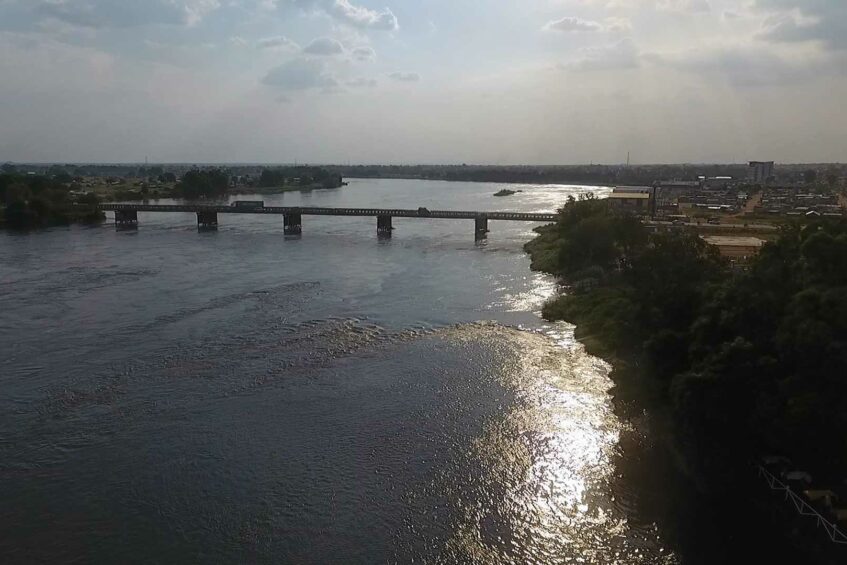
View of the River Nile where Juba Bridge crosses from Gumbo Sherikat to Konyokonyo. (Courtesy)
An Ethiopian diplomat is encouraging South Sudan’s parliament to ratify the Nile Basin Initiative and Cooperative Framework Agreement and claim its share of the Nile water, including building its own dam.
Fesseha Shawel, the former Ethiopian Ambassador to South Sudan, said the 1959 Nile Water Agreement between Egypt and Sudan unfairly gives a larger share of the water to the two downstream nations, although the Nile is shared by 10 countries.
Mr. Shawel, also the Director for African Affairs, said this leaves the rest of the countries with limited rights to utilize the Nile water.
In an interview with Eye Radio, he encourages South Sudan’s legislature to rectify the agreement to enable the country to carry out a feasibility study on the construction of a dam.
“Let the parliament rectify this agreement and then we do the same with Burundi. Then South Sudan, Ethiopia, or Tanzania, so that we exchange information, experience and see the feasibility of the dams that coming in South Sudan,” he said.
“We can look for resources together. We can find it also from other interested parties and get clean water to our people. Get electricity. Renewable cheap energy to our people. That’s my wish.”
“Particularly to the members of parliament in the transitional legislative of South Sudan, they should vote unanimously, I suppose, on the national interest of South Sudan and the interest of this country.”
Due to the controversies over the Nile share, countries in the upstream came up with the Nile Basin Initiative and Cooperative Framework Agreement in 2010.
Between 2013 and 2019, Uganda, Rwanda, Ethiopia and Tanzania ratified the agreement while Kenya, Burundi, and South Sudan that joined in 2013 are yet to endorse the agreement.
Egypt and Sudan remain non-signatories to the agreement.
The former Ethiopian Ambassador to South Sudan further criticized Egypt’s insistence on a colonial-era agreement denying countries in the upstream their rights to the Nile.
“The Nile River is shared by 10 countries and yet we don’t have any common platform or institution to manage, how to use this water among all of us,” he said.
“The downstream countries, particularly Egypt are telling us, they’ve historical rights to 55 billion cubic meters of water which they also shared with Sudan 18.5 billion Quebec meters of water.”
“This means the 1959 water agreement leaves no water quarter for South Sudan, Ethiopia, Kenya, Tanzania, DRC Congo, Burundi, Rwanda, and Uganda. Is it acceptable in this 21st century?”
Last month, the Acting Minister of Foreign Affairs and International Cooperation said South Sudan would soon ratify the Nile Basin Initiative and Cooperative Framework Agreement to claim its share of the Nile water.
Deng Dau Deng made the remark after the conference on Equitable Utilization of Nile Water on 23 of June in the Ethiopian Capital Addis Ababa.
A top South Sudanese diplomat in Uganda disclosed that the country hopes to start importing electricity from Uganda before the general elections in 2024.
Support Eye Radio, the first independent radio broadcaster of news, information & entertainment in South Sudan.
Make a monthly or a one off contribution.
Copyright 2024. All rights reserved. Eye Radio is a product of Eye Media Limited.